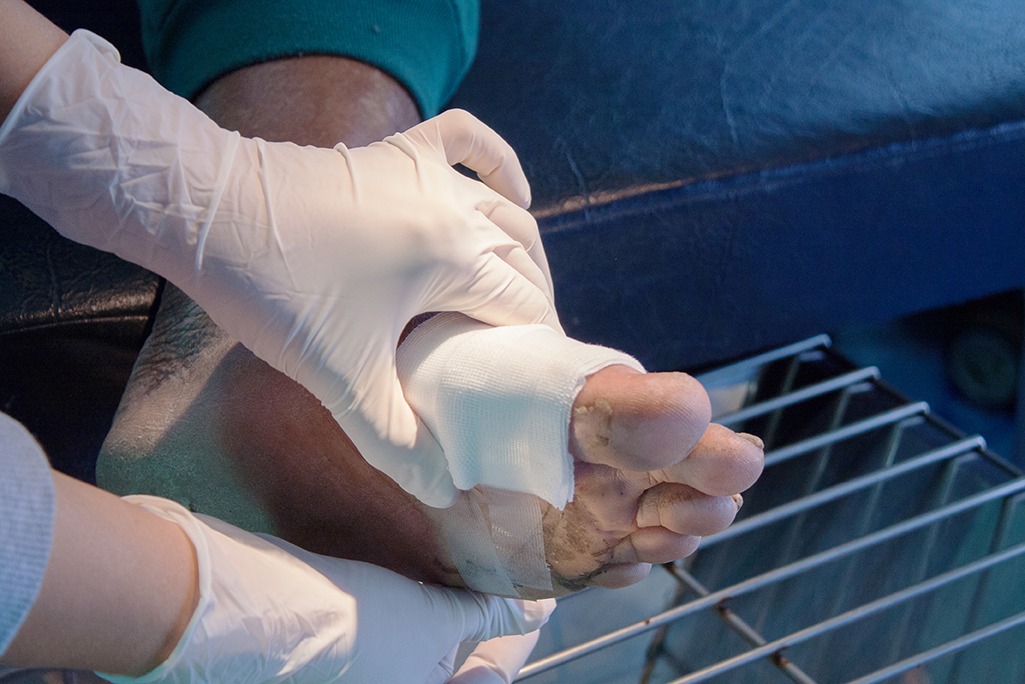

Long-term care facilities often manage patients with pressure ulcers using specialized wound care practices. Sacral pressure ulcers require prompt treatment to prevent complications like deep wounds and signs of infection. Wound care doctors recommend monitoring wound characteristics to ensure effective healing. Proper wound dressing plays a vital role in protecting these injuries and reducing further tissue damage.
The treatment of pressure ulcers includes strategies to minimize prolonged pressure and improve circulation. Wound care doctors develop personalized wound care treatment plans to address the severity of sacral ulcers. These plans often include repositioning patients regularly, applying advanced wound dressings, and promoting skin integrity.
Patients with pressure ulcers in intensive care units need constant monitoring for signs of infection. Early intervention prevents these chronic wounds from worsening into deep wounds. Wound care doctors focus on identifying pressure injuries early to provide effective care.
Sacral pressure ulcers often result from limited mobility in long-term nursing home residents. Without proper treatment, these pressure sores can cause severe pain and impede recovery. Specialized wound care treatments help improve outcomes for patients with pressure injuries by addressing the underlying causes of sacral ulcers.
Treatment of pressure ulcers also involves educating caregivers about the importance of reducing prolonged pressure. Understanding wound characteristics helps caregivers and healthcare professionals select appropriate wound dressings and enhance healing. Advanced wound care techniques focus on preventing complications and promoting recovery.
Effective wound care for sacral ulcers emphasizes addressing the root cause of chronic wounds. Long-term nursing home residents and patients in intensive care units benefit from tailored treatment plans. Pressure sores on bony prominences require attention to detail to ensure successful healing.
By addressing the needs of patients with pressure injuries, wound care doctors contribute to improved health outcomes. Their expertise in treating sacral pressure ulcers and other pressure ulcers ensures effective management of chronic wounds.



Certain factors increase the risk of pressure ulcers, including:
Preventive interventions and maintaining proper care of patients are crucial to reducing the prevalence of pressure injuries.
Early detection improves outcomes in nursing home and secondary care settings. Watch for these signs:
Complications of pressure ulcers can include septic arthritis, osteomyelitis in patients, and squamous cell carcinoma. Regular monitoring and reviews of wound care protocols help manage these risks.


Effective treatment of pressure ulcers involves a combination of interventions:
Mechanical debridement removes dead tissue manually.
Sharp debridement involves precise surgical removal of necrotic tissue.
Enzymatic debridement uses topical agents to dissolve devitalized tissue.
Numerous dressing options support healing in pressure ulcers, including:
Advanced dressings and topical growth factors promote wound healing and improve skin health outcomes
Surgical interventions include:
This method for wound control uses suction to remove bacterial growth and promote granulation tissue formation.
Topical antibiotics and systemic antibiotic treatment reduce bacterial infection risks and complications of pressure injury.
Adequate nutrition supports wound healing by improving factors in healing pressure ulcers. Nutritional interventions are vital for long-term care patients.




At VitaVia Medical in Houston, Texas, we specialize in wound care management and the treatment of pressure ulcers. Our team provides advanced care, including:
Our compassionate team focuses on improving outcomes in nursing home and secondary care settings. We are committed to promoting healing pressure ulcers and enhancing skin health.
Find Us On Google
(281) 900-4180
Send an Email
VitaVia Medical improves the lives of our community by offering state-of-the-art comprehensive wound care. We incorporate new innovative platforms that allow easy access to clinicians. Our company is guided by compassionate care, knowledgeable staff, and excellent treatment outcomes.
© 2024 VitaVia Medical. All rights reserved. Powered by ItsMoose.com